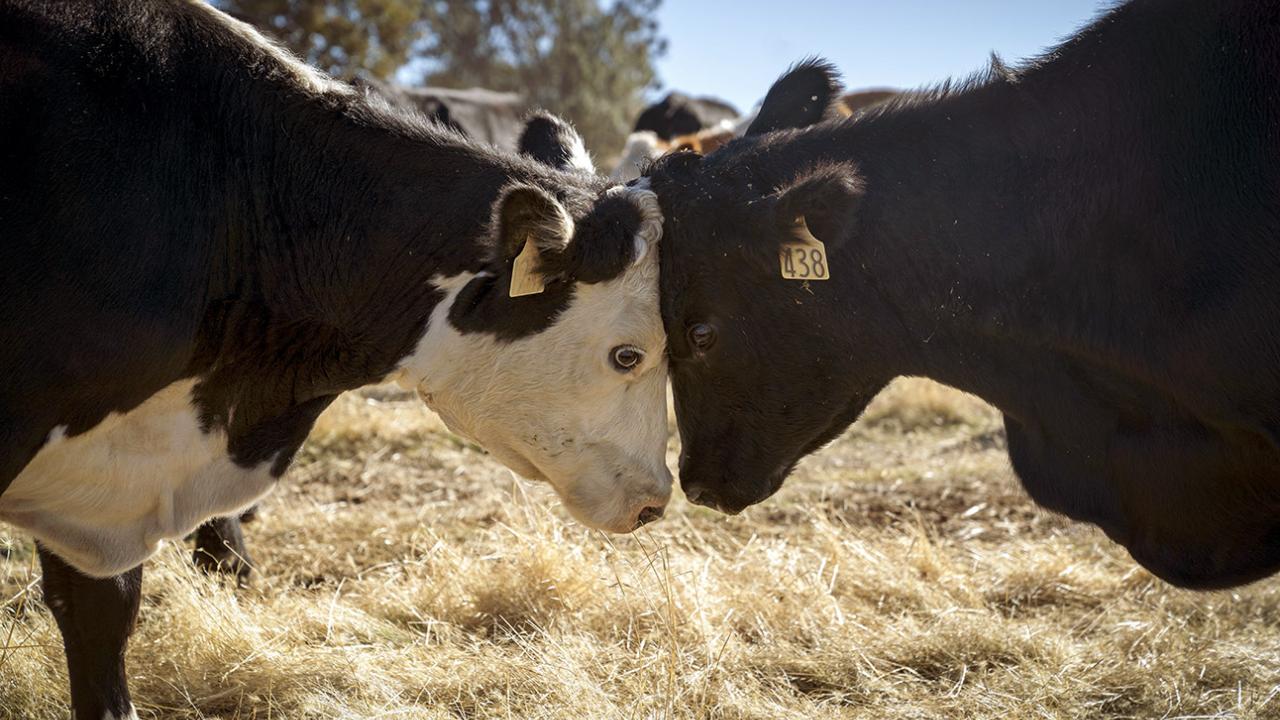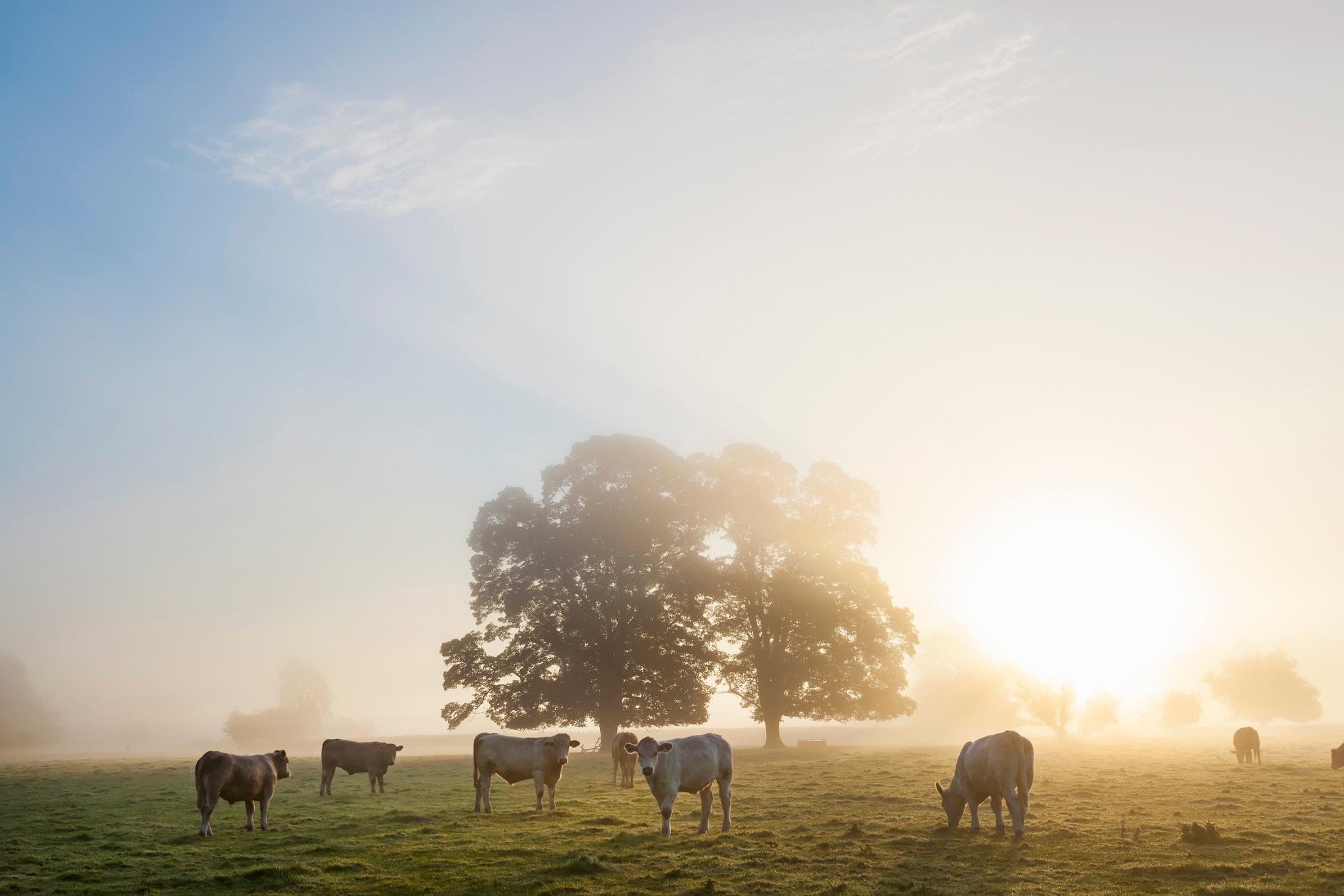
Seeing stars from the GWP* debate
GWP* measures methane right, now it’s up to us to use it right
There’s a lot of debate about the metrics used to quantify methane, a potent greenhouse gas, with GWP* often at the center of the arguments. Heated discussions arise over the fact that GWP* may be scientifically correct but nevertheless unfair to use. To be fair, there’s quite a bit to unravel.
Certain groups dislike GWP* because it shows that animal agriculture can meet demand and significantly reduce its climate impact by committing to strong methane reductions. These are primarily groups, but not the only ones, that want to see less animal agriculture – period.
Other naysayers believe GWP* gives a pass to developed regions with advanced livestock sectors. Here’s why: Farmers in developed nations have been producing animal-sourced foods (and emitting methane) for a long time. For example, the United States is the world’s leading beef producer, producing 18% of the world’s beef with 6% of the world’s beef cattle. Therefore our farmers are understandably responsible for a large volume of methane emissions. That said, emissions and output are relatively stable, a result of efficiencies and relatively low population growth compared to developing regions.
 For U.S. farmers and many in other developed regions, production isn’t increasing dramatically because population and corresponding demand for animal sourced foods are more stable than they are in developing regions. Thus, GWP* can make high emitters look like they aren’t impacting current temperatures, provided they can make some cuts to their methane emissions. We currently have tools to do that, with many more in the pipeline.
For U.S. farmers and many in other developed regions, production isn’t increasing dramatically because population and corresponding demand for animal sourced foods are more stable than they are in developing regions. Thus, GWP* can make high emitters look like they aren’t impacting current temperatures, provided they can make some cuts to their methane emissions. We currently have tools to do that, with many more in the pipeline.
On the other hand, many developing regions are experiencing more significant human population growth and corresponding increases in demand for animal sourced foods to better their nutrition. To score a GWP* win, these farmers must cut emissions at the same time they are being asked to produce more animal-sourced food to feed rapidly growing populations. To further complicate the scenario, these farmers have historically been less efficient than those in the United States, for instance. Their carbon footprint per glass of milk or ounce of meat is higher than it is for U.S. ranchers and farmers. Thus, increasing output will come at a higher emissions price, relative to regions that have more advanced animal agriculture systems.

Questions about GWP* and its applicability and fairness in the real world are legitimate concerns, despite the fact no one credible debates the physics behind it.
Methane is a potent gas that is broken down not long after being emitted. As a result, if emissions are stable, what is put up in the atmosphere can equal what is sunk in the atmosphere. It naturally follows that if we emit less methane than is naturally being broken down, we’ll reduce warming. If we up our methane emissions, we’ll add warming – and given that methane is a very powerful greenhouse gas, we’ll add a lot of warming. The message here? Methane gives us a lot of bang for our buck. We can quickly impact global temperatures by managing it.
However, while that is all true, there are other things in this conversation and tangential ones that are also valid:
- We need to reduce methane … significantly. It’s responsible for about one-third of all human-caused warming. A metric doesn’t change that fact.
- Sectors that primarily emit methane can reach climate neutrality much easier than CO2-producing sectors simply by having stable emissions. But – and this is the truth I want to get to – that doesn’t give anyone a free pass. In fact, sectors that produce methane can eat into their historic emissions by reducing beyond stable levels. There are tools coming online to help certain sectors do that. We should encourage their adoption and give producers credit for doing so.
- Two things can be true at once. You can protest animal agriculture, and GWP* can be accurate.
- We can reduce methane on farms and continue to have a high yield.
- We can’t lose focus on reducing CO2, the most plentiful of our greenhouse gases. It’s stockpiling in the atmosphere, continuously heating our planet for hundreds and thousands of years, if not forever.
Arguments against GWP* are rooted in the fears that it lets agriculture sectors off the hook if their emissions are stable, and that it penalizes those with growing sectors. In other words, countries that have been big-time producers and emitters historically could continue to produce and emit at a high level and claim to have minimal impact on global temperatures, or they could make some minor cuts and proclaim victory. But this isn’t the fault of GWP*. How we use it is the key thing, and that’s a critical conversation to have.
If we are telling producers that their efforts to feed us are exacerbating climate change, then they deserve to know how their actions to reduce emissions really impact the climate. I believe that showing the effect reductions have will encourage further solutions and adoption of those solutions. In addition to feeding us, let’s not forget that farmers are stewards of our lands.
At the end of the day, I think we’re smart enough to use the GWP* metric in ways that drive us to reduce warming without granting established sectors a free pass or penalizing those that are growing theirs to provide more and better nutrition to their populations. A one-size-fits-all approach isn’t appropriate as we look to tackle the environmental impact of production in a diversity of regions.
At the end of the day, one fact is irrefutable, regardless of which side of the argument you’re on.
We will need to produce more food, and we will need to do it better than ever before.
Dr. Frank Mitloehner is a professor and air quality specialist in cooperative extension in the Department of Animal Science at UC Davis.
This article is republished with the permission of the author, to view original article o the UC Davis Clear Center website, click here
